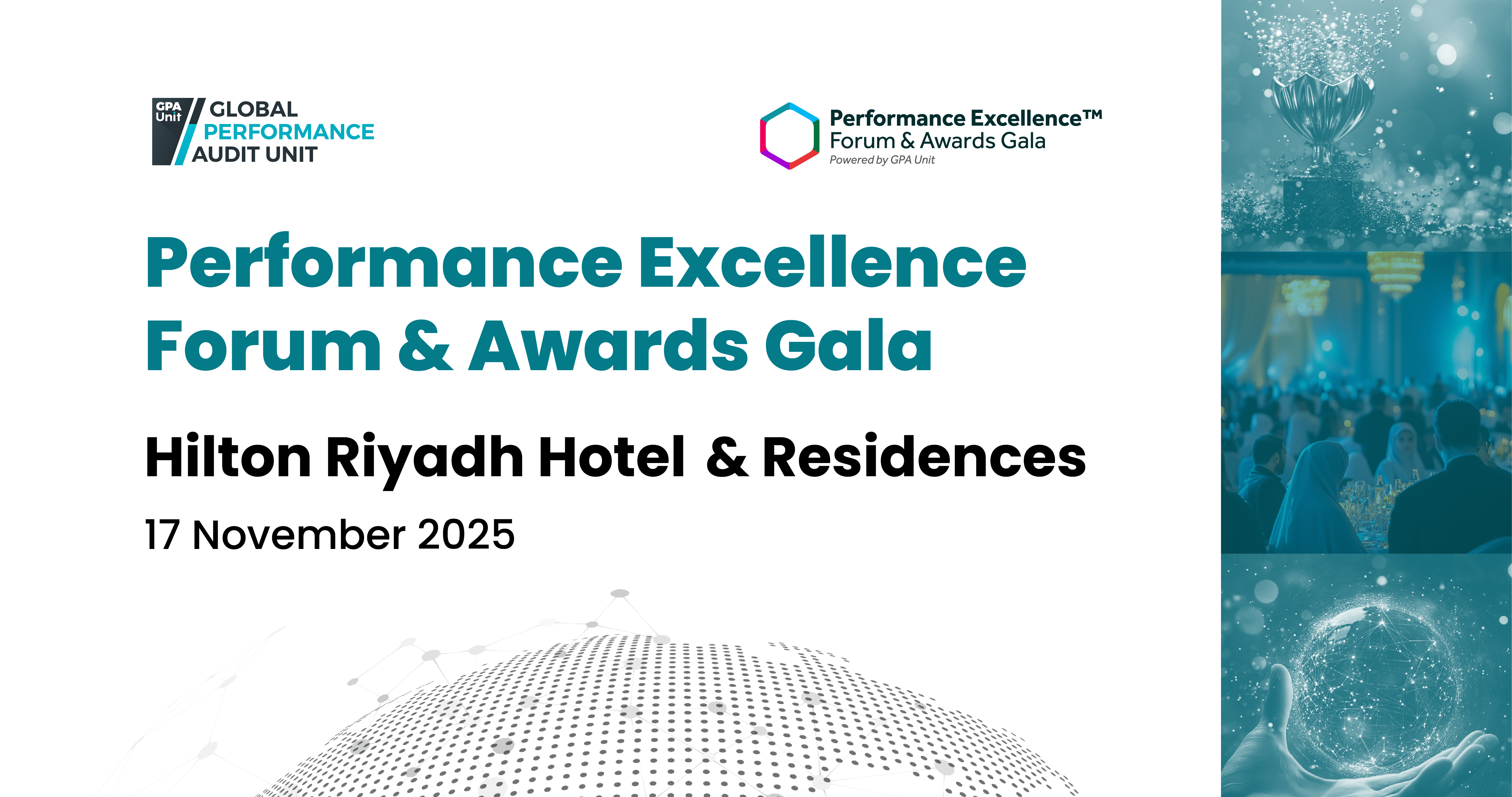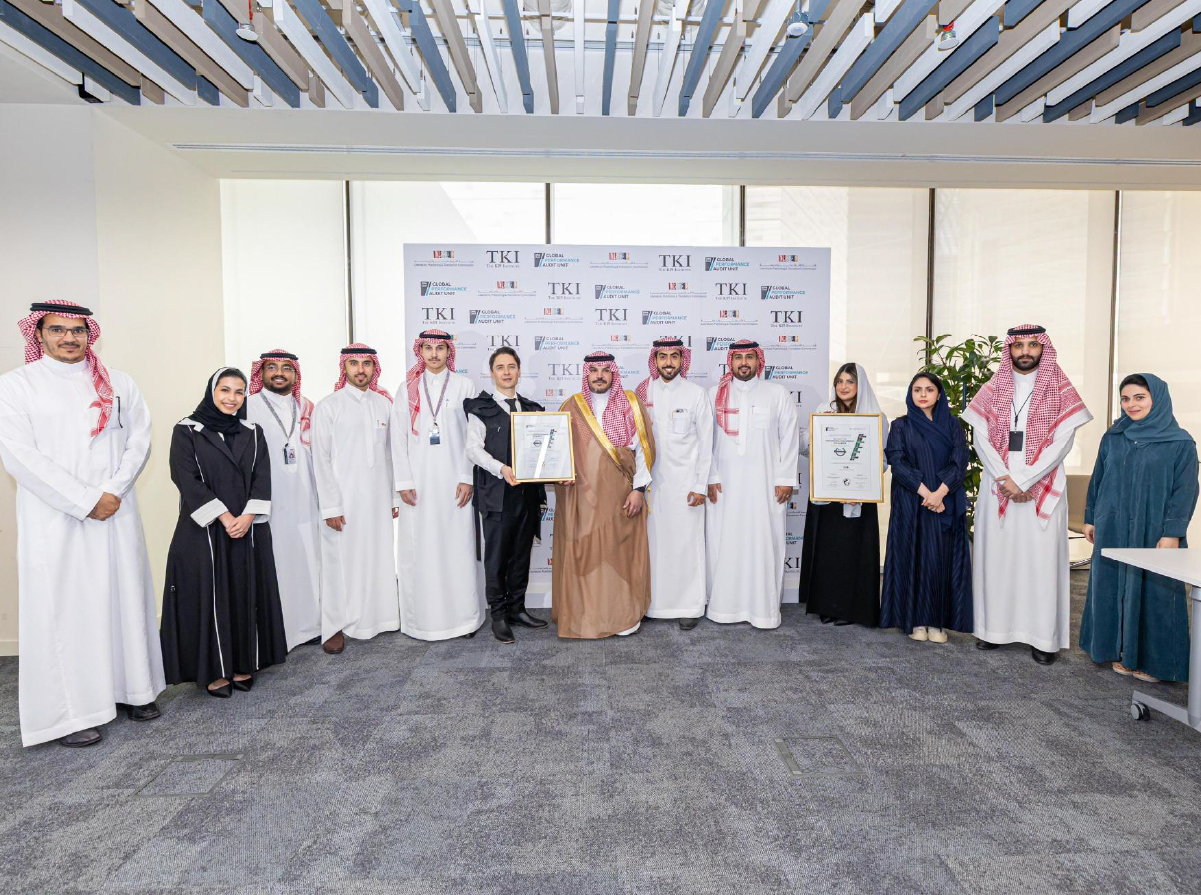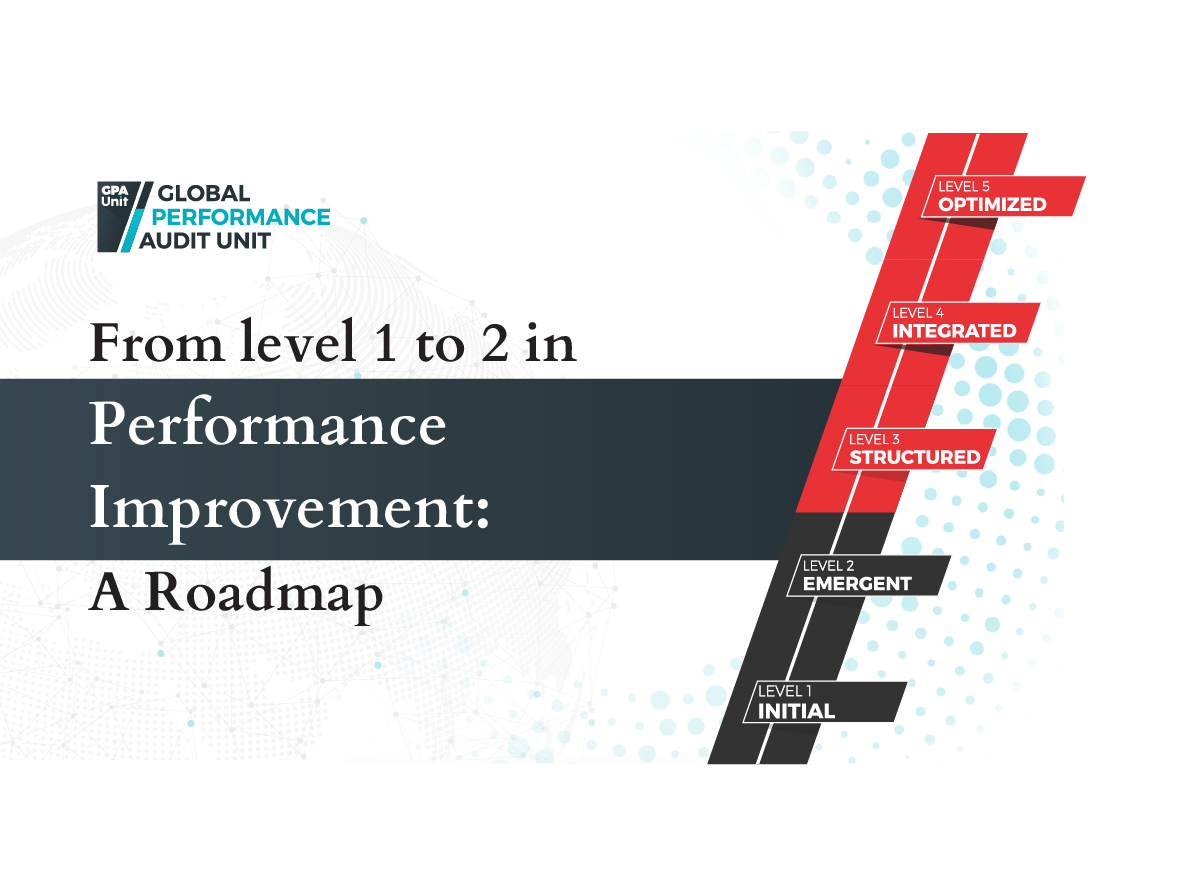Innovating Excellence Through Strategic Alignment and a Shared Vision
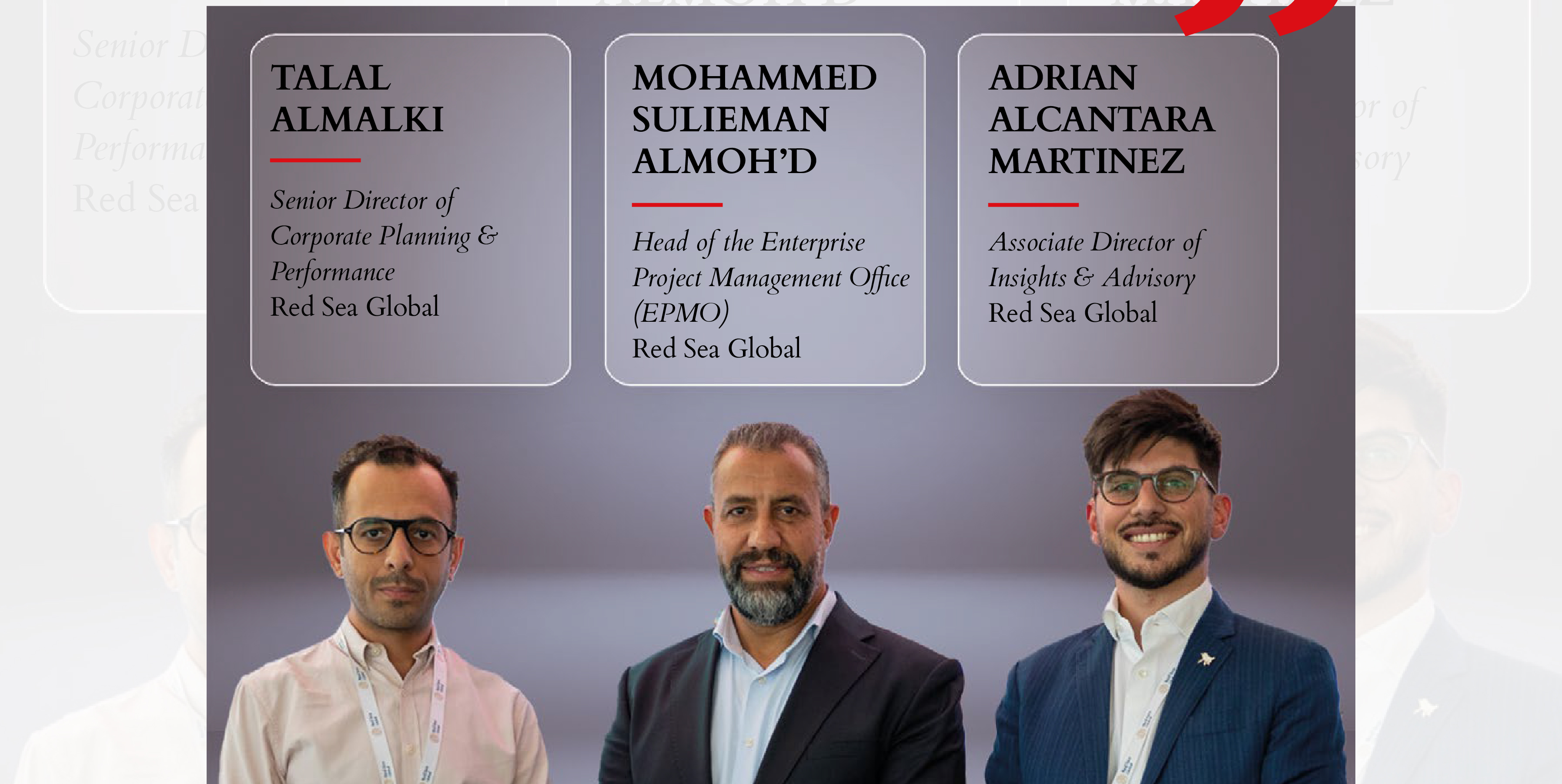
Pushing boundaries in business excellence goes beyond processes and principles. It also highlights people’s capabilities and alignment with an overarching strategy and performance standards. This means celebrating unique strengths while championing a shared vision. At Red Sea Global (RSG), this paradox serves as their compass for excellence.
RSG, a vertically integrated real estate developer with a diverse portfolio across tourism, residential, experiences, infrastructure, transport, healthcare, and services, seeks to lead the world toward a more sustainable future. They strive to bring about responsible development that uplifts communities, drives economies, and enhances the environment, as demonstrated by notable undertakings, such as The Red Sea, AMAALA, and Thuwal Private Retreat.
RSG’s guiding vision is exemplified by three key leaders who have been instrumental in setting the bar high for the organization’s strategy and performance management processes:
Mohammed Sulieman AlMoh’d is a seasoned business management professional who leads the Enterprise Project Management Office (EPMO) at RSG. He led several transformation projects across the region as a consultant for PwC and established one of the most advanced PMO practices in the Kingdom.
Talal Almalki is the Senior Director of Corporate Planning & Performance at RSG. With a Master’s in Business Process Management (BPM) from the Queensland University of Technology, he is recognized for his deep curiosity and innovative contributions to business frameworks.

Adrian Alcantara Martinez specializes in developing strategic approaches for the tourism, hospitality, and leisure strategy sectors. Having earned a Master’s in Internal Management from ESADE Business School, he currently leads Corporate Projects Excellence practices at RSG, featuring a distinct in-house advisory function.
In this interview, they offer a collective understanding of how RSG achieves business excellence through exceptional performance management and strategy implementation.
How do you perceive the current maturity of your industry regarding strategy and performance management practices in organizations? In which areas do you see significant room for improvement?
The maturity of performance management in our industry is relatively high. It is driven by young, high-profile entities like PIF-backed companies and projects and effective alignment with the Saudi Vision 2030. The ecosystem benefits from top-tier resources and world-class talent, resulting in state-of-the-art systems. We are improving our benchmarking capabilities against other industry players since many companies, such as ourselves, are pioneers entering the global market.
What are the secret ingredients that differentiate an effective strategy planning process from a redundant one?
An effective strategy process requires ensuring that the company’s strategy cascades to divisions, departments, and teams. Everyone needs to clearly understand their roles and how they contribute to the bigger picture. This clarity allows teams to turn their mandates into actionable annual plans with relevant KPIs and specific targets, all tied to projects that must meet certain performance levels.
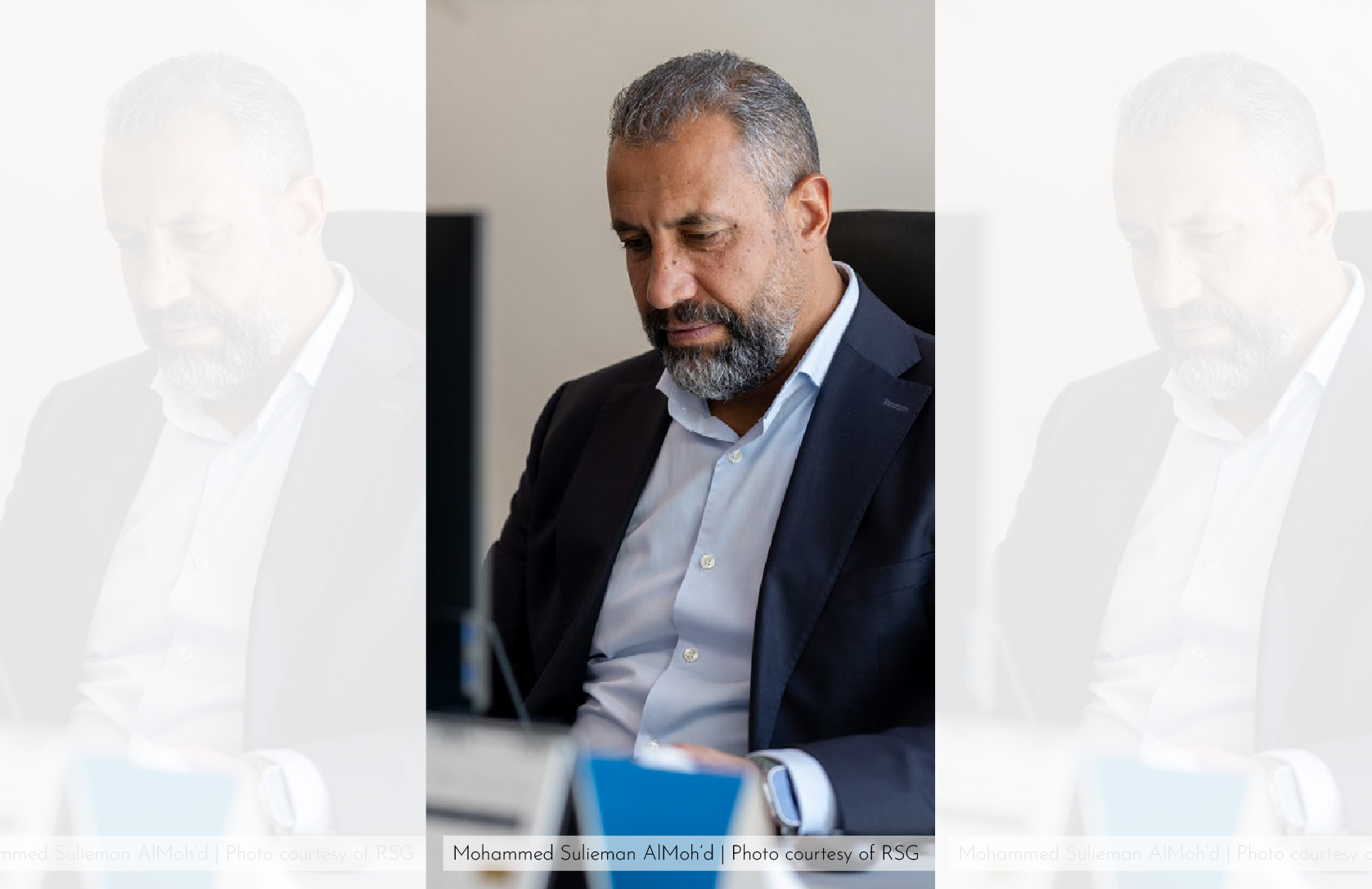
Why does strategy fail so often in organizations? Could you share some lessons learned from your organization/experience?
Strategy often fails because it's seen as too theoretical and disconnected from business realities. At RSG, we made strategy more practical by adapting the balanced scorecard and adding a fifth dimension for sustainability. Our approach combines long- and short-term thinking and emphasizes collaboration. This ensures that planning is co-created rather than imposed, making it more practical and relevant to our needs.
What role does performance management play in managing an organization nowadays?
Performance management is key to ensuring that teams focus on what really matters and are held accountable. It helps us track our progress compared to our goals, balancing immediate and long-term indicators. The latest technology makes it easier to see how activities and outcomes are linked, enabling effective decision-making.
How can business leaders make better decisions when confronted with so much data and information?
Making sense of all the data can be challenging, but at RSG, we approach it as an art, especially in data visualization. Our EPMO has a business intelligence team that customizes dashboards for different audiences. We are also exploring mobile apps with real-time data to keep up with busy C-suite schedules. However, we still value traditional methods like periodic performance reviews with focused agendas and let experts handle the data deep dives.
What practices can senior leadership adopt to develop a culture of performance excellence in organizations?
Senior leadership should set and communicate ambitions clearly and consistently across multiple channels. However, words can only go so far, so it is important to embed performance excellence into the company’s culture. Top management should demonstrate how these expectations translate into behaviors and empower teams to take these examples into their day-to-day work. Recognizing and rewarding individuals and teams exemplifying performance excellence creates a self-reinforcing cycle.
Where should organizations focus more of their attention to achieve performance excellence? Is it in optimizing the performance management system (doing things right at the framework level) or the business results (performance outcomes generated by different processes)?
A performance management system (PMS) is crucial for driving business results as it impacts various dimensions like policies, processes, and governance. However, optimizing this system must be carefully planned to avoid distracting from achieving actual results. To gain leadership support and stakeholder buy-in for changes, organizations must demonstrate how improvements in the system lead to tangible enhancements in business outcomes.

What triggered your decision to undertake the Strategy and Performance Management Maturity Assessment?
After four years of growth—since our EPMO team was established in 2019—we felt it was the right time to get an external perspective to ensure our practices aligned with industry best practices and the highest standards. Confident in our tailored approach and comprehensive PMS, we saw this as an opportunity to celebrate our achievements and identify areas for improvement, enabling us to continue to set new benchmarks.
How did you find the assessment process?
Our experience with The KPI Institute (TKI) was very positive, starting with the discovery sessions. We were already familiar with TKI’s frameworks since many of our team members have been trained as balanced scorecard practitioners. The maturity assessment was well-coordinated, even though it was demanding. It also generated high levels of interest from all stakeholders. The endeavor strengthened our relationships with other divisions and provided valuable insights into how our contributions are perceived across the business.
How did the Integrated Maturity Assessment contribute to the progress of the organization?
The Maturity Assessment provided us with a clear roadmap for improvement, offering sound, actionable recommendations that were translated into action plans in collaboration with the respective owners. The overall program is a two- to three-year plan, and we are diligently monitoring its implementation. We are currently approaching 50% completion, with the goal of achieving 70% by year-end. Notably, the maturity assessment legitimized our practice and gave us the confidence to pursue even more ambitious goals.
For more useful insights on Performance Management and Maturity Assessments click here:
https://kpiinstitute.org/Performance-Magazine-Issue-31-Business-Excellence-Edition.pdf
| DATE | December 10th, 2024 |
| Category | Blog Posts |
| Reading Time | 6 |
